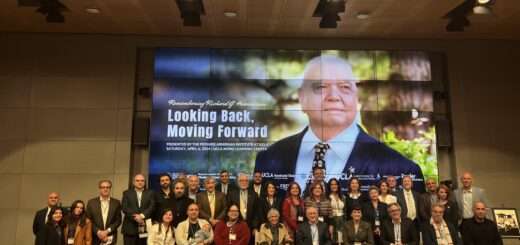Quantum Entanglement LIDAR: Steering the Future of Autonomous Navigation and Beyond

By Aram Ter-Martirosyan
In the quest for the next leap in autonomous vehicle technology, quantum entanglement is poised to revolutionize the way self-driving cars perceive the world around them. This principle, once a bewildering concept in theoretical physics, offers a promising foundation for enhancing LIDAR (Light Detection and Ranging) systems, setting the stage for significant advancements in efficiency, accuracy, and safety of autonomous navigation.
At its core, quantum entanglement involves pairs of particles being interconnected in such a way that the state of one instantly influences the state of its counterpart, regardless of the distance between them. Applying this concept to LIDAR technology, imagine particles of light that are linked like pairs of magical threads. When one particle encounters an object, its entangled partner instantly reacts, relaying information about the object’s distance and characteristics without the particle having to travel back. This enables the self-driving car to “see” its environment in real-time with unparalleled precision.
Quantum entanglement LIDAR transcends the capabilities of traditional LIDAR in several key aspects:
The potential of quantum entanglement LIDAR extends far beyond civilian use, promising transformative applications in the military domain. Its enhanced precision and range can significantly improve surveillance and reconnaissance missions, providing detailed environmental data even in visually obstructed or challenging conditions. The technology’s inherent data security features are also invaluable for secure communication, ensuring that sensitive information remains protected from interception or tampering. Moreover, its ability to operate effectively in a wide range of environmental conditions offers a strategic advantage in various operational theaters, from dense urban environments to remote, harsh terrains.
As research and development in quantum technologies continue to advance, the integration of quantum entanglement into LIDAR systems for autonomous vehicles and military applications heralds a new era of technological innovation and security. The promise of ultra-secure, efficient, and accurate sensing and communication systems is not only a milestone for autonomous navigation but also a beacon of progress in high-stakes military operations, where precision and reliability can save lives.
Quantum entanglement LIDAR represents a significant stride toward a future where autonomous vehicles, whether on the streets or in the battlefield, navigate with an unprecedented level of awareness and safety. While challenges remain in harnessing this groundbreaking technology, the journey toward quantum-enhanced autonomy is a testament to human ingenuity and the relentless pursuit of advancement. As we stand on the threshold of this exciting frontier, the potential applications of quantum entanglement in LIDAR technology illuminate a path not just for improved autonomous navigation, but for a world where the boundaries of communication, security, and exploration are continually expanded.
Embarking on a journey with quantum entanglement LIDAR technology offers an exhilarating opportunity for startups, particularly in a nation as dynamically tech-focused as Armenia. For a startup aiming to delve into this cutting-edge field, the initial steps involve a deep dive into quantum physics and optical engineering, areas where collaboration with academic institutions and research centers can be invaluable. Armenia, with its rich heritage in science and technology and a burgeoning IT sector, presents a fertile ground for such innovative endeavors.
Startups can leverage Armenia’s robust network of tech incubators, governmental support for high-tech ventures, and a growing community of tech enthusiasts and professionals to kickstart their projects. The key lies in fostering partnerships with universities and research institutions, which can provide access to both expertise and state-of-the-art research facilities. Additionally, engaging with Armenia’s diaspora network, renowned for its global connections in the tech industry, can open doors to mentorship, funding, and collaboration opportunities on an international scale.
The potential for startups working on quantum entanglement LIDAR in Armenia is significant, not only due to the country’s commitment to advancing its technological landscape but also because of the global demand for breakthroughs in autonomous vehicle technology and secure communication systems. By positioning themselves at the forefront of this niche yet rapidly expanding field, Armenian startups have the chance to lead in the development of next-generation LIDAR systems, contributing to the global tech ecosystem while bolstering Armenia’s reputation as a hub for innovation and high-tech research.







